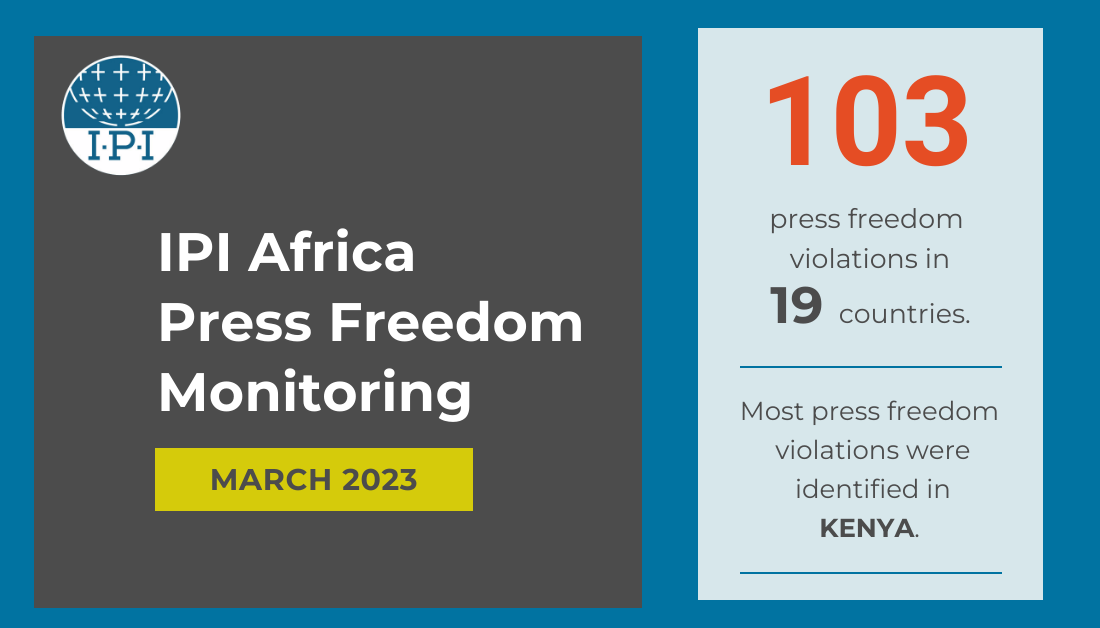Journalists across Africa continued to bring the public critical news and information about elections, political protests, and conflict, while also facing risks to their safety and security, as IPI’s monitoring of press freedom violations for the month of March showed.
According to IPI data on press freedom threats and violations, 103 incidents were identified across 19 countries in the region in March. IPI documented the highest number of incidents in Kenya where journalists that month came under physical attack by security forces as well as by opposition party sympathizers while covering anti-government protests. IPI also documented cases involving the harassment and arbitrary detention of journalists, including cases in which authorities destroyed journalists’ equipment.
In response to these developments, IPI wrote a letter to the relevant authorities calling for an investigation of these incidents and for perpetrators of attacks against journalists to be held fully accountable.
Following the presidential and legislative elections in Nigeria in February, journalists faced more attacks during the gubernatorial elections in March allegedly at the hands of political party sympathizers and security forces.
Similarly, in South Africa, two SABC journalists who were covering protests in Nyanga, Cape Town were also attacked by unknown individuals resulting in one of the journalists sustaining an injury.
To download the full fact sheet
IPI monitors and collects data on press freedom violations in Africa using a standardized methodology that categorizes violations across the following main categories: physical, verbal or online attacks; arrests and charges against journalists; surveillance of journalists; cases of censorship; laws and regulations that restrict the press freedom; and restriction on access to information. Data are further disaggregated by gender. Our monitoring and data collection activities are part of IPI’s wider Africa programme, which aims to defend press freedom and the safety of journalists in sub-Saharan Africa.
